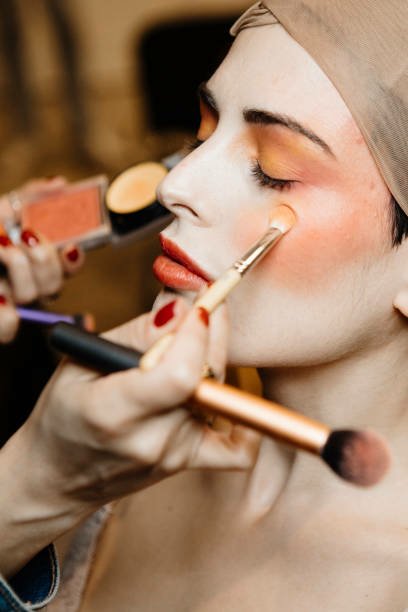There’s a high chance you might be spreading bacteria – inadvertently – across your face each day. Without a set of clean make-up brushes in your arsenal, the dirt and bacteria that fester in those dirty bristles can lead to acne, clogged pores and even infections in extreme cases – plus, it’s much easier to create a good look with a freshly-washed tool. And, as Jamie Coombes, international pro make-up artist at Dior points out: “If you look after your brushes, they can last for years.”
Learning how to clean your make-up brushes correctly is also essential for daily performance. “Product can cake or dry in the bristles, meaning that they become less flexible and able to take up product, thus reducing the efficacy of the brush,” explains Julia Stewart, national training manager at Shiseido.

Photo : Getty Images
How often should you clean your make-up brushes?
From dermatologists to make-up artists, experts agree that any make-up brush that is being used on skin regularly should be cleaned at least once a week to free it of product build-up as well as bacteria, grime and oil that accumulates on the face – it might sound like a lot, but it’s worth doing, particularly if you suffer from skin conditions like acne. Meanwhile, brushes that are used around the eyes can be cleaned less often – fortnightly – or in between uses to avoid colour contamination.
What should I clean my make-up brushes with?
For natural hair brushes, use a gentle cleanser: “I treat my natural hair brushes like my own hair,” says Coombes. A regular shampoo – baby shampoo is a great choice – mixed with warm water will cleanse the bristles of oil, powder and wax without leaving them stripped and dry. The aim of brush cleaning is to banish bacteria, not bristles, so it pays to perfect your method. “Try not to press the brush head directly down, as this will break smaller, more fragile fibres,” he advises.
Meanwhile, you can take a tougher approach with synthetic brushes: “For a heavily-used fluid foundation brush, I use an eco dishwashing liquid, being sure to rinse it out thoroughly,” Coombes explains. If that sounds a bit severe, try a simple castile soap, but be prepared to deploy a rigorous technique.
“You will need to wash liquid foundation and lip brushes more thoroughly in order to lift the oil and wax from the bristles,”
he adds.
— Vogue





















